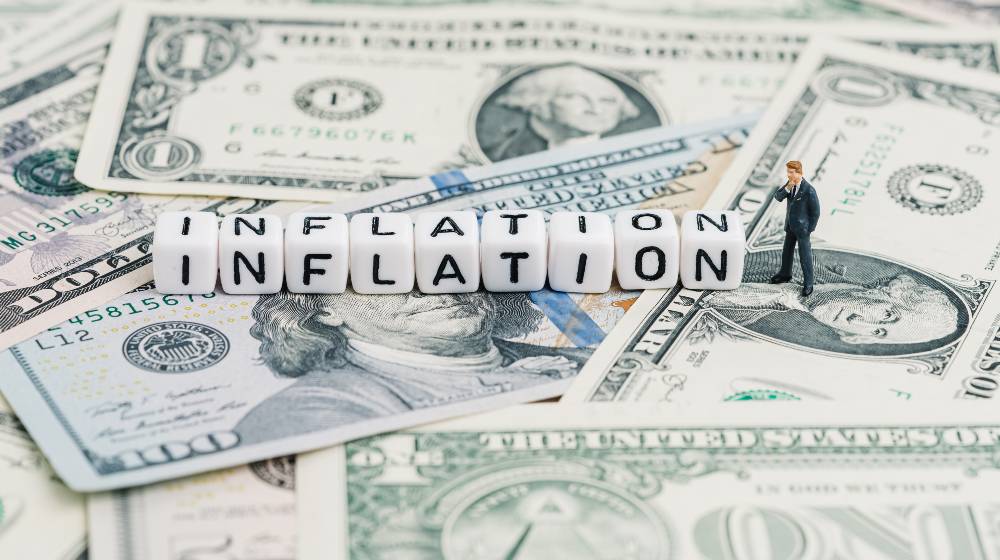What is inflation? To really understand inflation, you need to know what money is and why we use it. Money represents the value of hard work and producing things that other people want to use.
The measurement of this production or hard work is done with units of money. If I spend $20 to buy a can opener, that $20 represents an hour of work serving food at a restaurant as an example.
You can see this by looking at a job that pays wages by the hour, and then taking those wages and buying things that you do not produce to obtain all of the things that you need to live.
The backbone of this idea is exchanging and trading goods, because making everything you need by yourself may not be possible.
RELATED: Economic Impacts Of Inflation And Rising Interest Rates
Inflation Explained
The assumption people make is that $20 today is $20 tomorrow. Actually, it is not. The prices of things are constantly changing, and the value that this $20 can purchase depends on when you use it and what you buy with it. Want proof?
Look at the price of food items, gasoline, education, rent, utilities, and many household goods and services over time. Prices are going up most of the time for most items and this $20 is buying less and less every year.
To see a drastic comparison, in 1920, $20 bought you a suit, a belt, and a new pair of shoes. Today this $20 may buy you a belt only. Inflation is when the prices are rising and more money is needed to purchase things of identical quantity and quality.
Deflation is when the same money is buying more things of identical quantity and quality. This has been happening with technology, clothing, and internet shopping as some examples.
Inflation is also defined as the rate at which the prices are increasing, and the rate at which the value of the dollar is falling. What can you do about it?
Back in the 1970s and 1980s, you would get raises at your job each year that were at least equal to the rate of inflation or the rate at which the value of the dollar was falling.
This allowed you to buy the same things for the same amount of work that you were doing. As an example, if you made $20 per hour in 1970, you can purchase 5 liters of milk for $20.
In the following year, the price of milk increased to $21, and your wage would increase to $21 and you can buy the same amount of milk for an hour of labor.
If you are an investor, you would park money in a bank account with an interest rate that was the same or higher than inflation so that you can buy the same or more goods with the capital you had invested.
If you were a landlord, you would increase your rent by 5% to counteract the increase in your expenses of 5% such that your rental property would create the same amount of profit in spite of inflation.
What happens if you don't get this raise, or investments are not paying a return equal to inflation? The value of the work you are doing becomes worthless, or the amount of goods you can buy for your work becomes less.
The value of the investment capital also becomes worthless over time. If this trend continues for a long period of time, your labor will not allow you to buy very much and you will be approaching enslavement. Once the capital diminishes to the point that nothing can be purchased with it, this is called insolvency.
The solution is to find labor, investments, or assets that would retain their purchasing power in spite of inflation.
For labor, it is to obtain wages that would rise each year. For investments, the income yield or rate of growth should be higher than inflation.
For assets, these would be physical, tangible things that would still be useful in spite of what the currency is worth. These are assets that people always need: Food, water, shelter, land, productive capacity (tools, equipment), and precious metals for use as currency.
How do you know the effect that inflation is having on your purchasing power? You need to look at how much your income or capital is increasing each year versus how much the things you need are increasing in price every year.
The government puts out an average number called the Consumer Price Index (CPI) which is supposed to capture this for the average person.
To know your personal impact, you need to calculate what your income and spending amounts are as they change with time, preferences, and income-generating ability.











